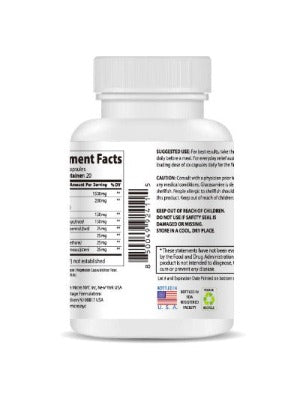B vitamins, also known as the B-complex group, are essential for maintaining good health. They play a critical role in energy metabolism, nervous system function, and cell division. Among these, Complex B vitamins and individual B vitamins are popular supplement choices, each with significant differences.

Complex B Vitamins: A Comprehensive Supplement
Complex B vitamins are a comprehensive supplement that includes a variety of B vitamins, typically encompassing:
- Vitamin B1 (Thiamine): Essential for normal nervous system function and energy metabolism.
- Vitamin B2 (Riboflavin): Involved in energy metabolism and cell growth, beneficial for eyes and skin.
- Vitamin B3 (Niacin or Niacinamide): Supports healthy skin, digestive system, and nervous system.
- Vitamin B5 (Pantothenic Acid): Aids in hormone synthesis, cholesterol metabolism, and blood sugar regulation.
- Vitamin B6 (Pyridoxine): Plays a key role in amino acid metabolism and nerve transmission, influencing the immune system.
- Vitamin B7 (Biotin or Vitamin H): Maintains the health of skin, hair, and nails.
- Vitamin B9 (Folic Acid): Crucial for cell division and DNA synthesis, particularly important for fetal development during pregnancy.
- Vitamin B12 (Cobalamin): Helps form red blood cells and maintain normal nervous system function.
The advantage of Complex B vitamins is their provision of a range of B vitamins, appealing for those seeking comprehensive health support. It also simplifies supplementation by reducing the need to purchase multiple individual B vitamins.
Individual B Vitamins: Specific B Vitamins
Unlike Complex B vitamins, individual B vitamins refer to separate B vitamins, each with unique functions in the body. Common individual B vitamins include:
- Vitamin B1 (Thiamine): Essential for normal nervous system function and energy metabolism, found in peas, oats, lean meats, and nuts.
- Vitamin B2 (Riboflavin): Involved in energy metabolism and cell growth, beneficial for eyes and skin, present in liver, eggs, yeast, and green vegetables.
- Vitamin B3 (Niacin or Niacinamide): Supports healthy skin, digestive system, and nervous system, obtainable from poultry, fish, peanuts, and legumes.
- Vitamin B5 (Pantothenic Acid): Aids hormone synthesis, cholesterol metabolism, and blood sugar regulation, sourced from lean meats, egg yolks, vegetables, and whole grains.
- Vitamin B6 (Pyridoxine): Key in amino acid metabolism and nerve transmission, affecting the immune system, found in chicken, bananas, nuts, and eels.
- Vitamin B7 (Biotin or Vitamin H): Maintains the health of skin, hair, and nails, available from egg yolks, legumes, and nuts.
- Vitamin B9 (Folic Acid): Crucial for cell division and DNA synthesis, important for fetal development during pregnancy, present in dark green vegetables, legumes, and nuts.
- Vitamin B12 (Cobalamin): Helps form red blood cells and maintain normal nervous system function, mainly in animal-based foods like meat, fish, and dairy.
Choosing the Right Supplement for You
The choice of vitamin B supplement depends on individual needs and health conditions. Here are some guidelines:
- Comprehensive Support: Complex B vitamins may be a better choice if you seek comprehensive health support, offering a range of B vitamins. This is particularly useful for those whose diets might not provide all essential vitamins.
- Specific Needs: Individual B vitamin supplements may be necessary for specific health issues or doctor's advice. For instance, extra vitamin B12 might be needed if you have absorption issues.
- Dietary Habits: Consider your diet. If you already get enough of a certain B vitamin from food, you might only need to supplement others.
- Consult a Doctor: Before starting any new vitamin supplements, it’s best to consult a doctor or healthcare provider for personalized advice.
In summary, both Complex B vitamins and individual B vitamins play important roles in promoting health. Choose the right supplement based on your needs and medical advice to ensure maximum benefit. Regardless of your choice, remember that a balanced diet is crucial for maintaining good health.













